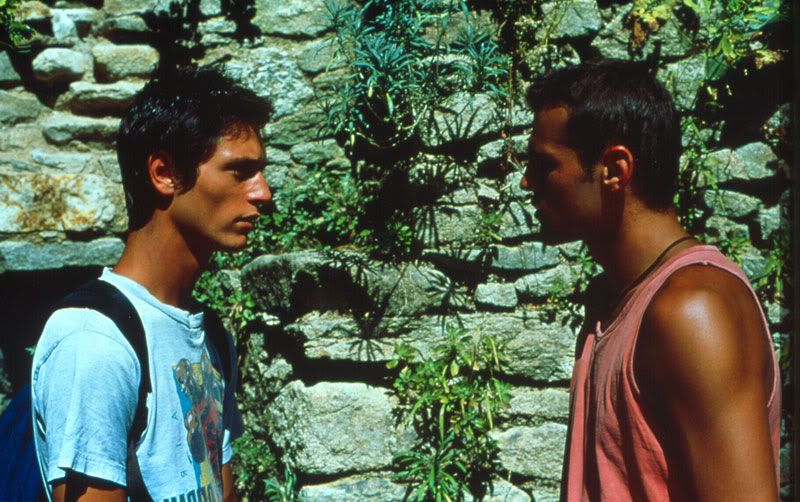HOME
This is the blog of Ian Rosales Casocot. Filipino writer. Sometime academic. Former backpacker. Twink bait. Hamster lover.
Interested in What I Create?
Bibliography

The Great Little Hunter
Pinspired Philippines, 2022

The Boy The Girl
The Rat The Rabbit
and the Last Magic Days
Chapbook, 2018

Republic of Carnage:
Three Horror Stories
For the Way We Live Now
Chapbook, 2018

Bamboo Girls:
Stories and Poems
From a Forgotten Life
Ateneo de Naga University Press, 2018

Don't Tell Anyone:
Literary Smut
With Shakira Andrea Sison
Pride Press / Anvil Publishing, 2017

Cupful of Anger,
Bottle Full of Smoke:
The Stories of
Jose V. Montebon Jr.
Silliman Writers Series, 2017

First Sight of Snow
and Other Stories
Encounters Chapbook Series
Et Al Books, 2014

Celebration: An Anthology to Commemorate the 50th Anniversary of the Silliman University National Writers Workshop
Sands and Coral, 2011-2013
Silliman University, 2013

Handulantaw: Celebrating 50 Years of Culture and the Arts in Silliman
Tao Foundation and Silliman University Cultural Affairs Committee, 2013

Inday Goes About Her Day
Locsin Books, 2012

Beautiful Accidents: Stories
University of the Philippines Press, 2011

Heartbreak & Magic: Stories of Fantasy and Horror
Anvil, 2011

Old Movies and Other Stories
National Commission for Culture
and the Arts, 2006

FutureShock Prose: An Anthology of Young Writers and New Literatures
Sands and Coral, 2003
Nominated for Best Anthology
2004 National Book Awards
Follow the Spy
Recent Crumbs
Blogs I Read
© 2002-2021
IAN ROSALES CASOCOT
Tuesday, December 07, 2010
 9:01 AM |
A Season in Heartbreak
9:01 AM |
A Season in Heartbreak

It's not easy to digest the narrative that unspools, like a fraught and fragmented world, in Sébastien Lifshitz's film
Presque Rien [
Come Undone, 2000]. It does not explain much of itself either, and one is left mostly to one's own devices to fill in the blanks that the film generously gives us. Perhaps it's best to note the change in time registers to make sense of the fragmented story: there's the bright summer of discovering passion and then the dull winter of gathering a scattered sense of self -- and between them there is a season of heartbreak set in a hospital where a beautiful 19-year-old languishes in unnamed melancholy. (Why is he here? This is the question we keep asking ourselves till the very end.) That these fragments of time blend into each other in the narrative is an audacious move in Lifshitz's direction, something that precedes the time-bending films of Alejandro González Iñárritu. And if one is patient enough, one gets finally a full story all told in the exact telling of feeling. What the film does give us with a measure of completeness is the summer love affair that blooms and turns to such realistic heat between two teenage boys -- sensitive Mathieu (played by a glorious and subtle Jérémie Elkaïm in a difficult role) and unfocused Cedric (played by Stéphane Rideau) -- in a seaside French town where Mathieu's mother has come to convalesce from a long bout of depression. Then we get snippets of a future reeling from the consequences of that summer. Just snippets, nothing more, and we are left wondering -- what happened? I think this is a story about how, in life, we meet and come to love people, but how we sometimes find that love is never enough. Especially if it's love between people who just belong to two different worlds. We need connection beyond the temporary giddiness of the carnal. I think, in the end, Mathieu finds that, but the movie simply does not give us the luxury of knowing for sure. It challenges us to find out for sure by way of feel. This is the film's weakness, and its strength. I love this film. It is probably one of the most realistic chronicle of falling in love and the devastating aftermath of heartbreak that has ever been set down to celluloid, without the histrionics of the actual heartbreak.
Labels: film, queer
[0] This is Where You Bite the Sandwich
GO TO OLDER POSTS
GO TO NEWER POSTS

















 9:01 AM |
A Season in Heartbreak
9:01 AM |
A Season in Heartbreak
